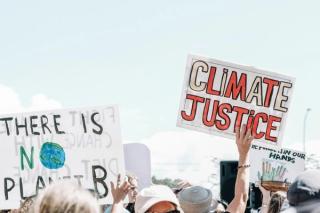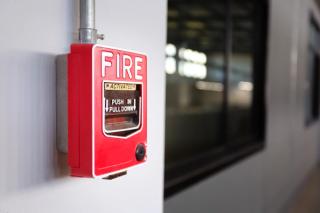
ESG Insights: What Climate Justice Means for Global Business
- Post Date
- 01 January 2023
- Read Time
- 5 minutes

Although climate change is likely to detrimentally impact all global citizens, it will inherently impact certain communities more than others.
Historically marginalised and overburdened communities, such as low-income households, ethnic minorities, Indigenous communities, the disabled and elderly (to name a few) are disproportionately adversely affected by climate change, yet have the least resources and ability to adapt and respond to its impacts.
As these communities already face inequities across several areas of life, even in developed country contexts (e.g., accessing health care, financial capital, education, jobs, public transportation, and other important resources), new shocks make them even more vulnerable.
Climate Justice
While the term Environmental Justice has been in the US Government’s vocabulary since the 1980s, ‘Climate Justice’ and ‘Just Transition’ have only recently gained traction.
Environmental Justice refers to the fair distribution of environmental benefits and burdens, equitable treatment, and meaningful engagement with all people regardless of race, ethnicity or income, and has typically focused on environmental issues such as air quality, hazardous waste and water, and soil pollution.
While founded on similar principles, Climate Justice and Just Transition focus more on the nexus between social progress, economic needs and climate change – how do we meet our needs as a society as we transition to a low-carbon energy future, how do we fairly distribute climate change burdens, how do we ensure socially sustainable employment opportunities, and who bears the costs of both climate change and the actions taken to address it.
We Have to do Better
As climate change impacts become more widespread and extreme, environmental and climate justice groups are getting better organised and are putting pressure on Governments - and companies - to ‘do better’.
A report by the United Nations Environmental Programme (UNEP) found that climate-related court cases have doubled over the last three years and are increasingly compelling governments and corporations to implement climate commitments, recognise and promote climate justice, as well as pursue more ambitious climate change mitigation and adaptation goals.
A recent example includes the successful lawsuit seven activist groups launched against Royal Dutch Shell, asserting that a heavy emitter such as Shell needs to double its 2030 emission reduction targets, to ensure that temperatures do not rise beyond a safe limit.
Another example was in June 2021, where a Brussels court declared the Belgian state itself had committed an offence under civil law and breached the European convention on human rights for not taking necessary measures to prevent the effects of climate change.
These wins are important, as they demonstrate courts are willing to enforce both a nation’s, and a corporation’s, responsibility to society for the energy transition. Governments are responding too – for example, the Scottish Government has a Just Transition Commission which is tasked with growing an inclusive net-zero economy, putting consumers at the centre of local energy systems development, and engaging meaningfully with people and communities and how they wish to be involved.
Momentum
While political will around climate change continues to gain momentum, private corporations are increasingly making commitments to improve performance – committing to science-based net zero targets, transitioning to more energy efficient modes of operation, investing in reforestation and spearheading biodiversity net gain initiatives.
Some companies are also taking Climate Justice and Just Transition a step further, realising the close interconnectedness between social justice and climate change and the roles that businesses must play in addressing it.
For example, Starbucks has begun integrating equitable strategies across their business, particularly in their climate solutions, and has committed to investing $100 million to create the Starbucks Community Resilience Fund focused on advancing racial equity and environmental resilience by supporting small business growth and community development projects in Black, Indigenous and People of Colour (BIPOC) neighbourhoods.
As new pressures mount, including better organised environmental groups, changing investor appetite, conscious consumerism and stricter regulatory requirements, private corporations must start integrating Climate Justice aspects into their modus operandi. Those that fail to prioritise Climate Justice and consider its associated risks may face reputation damage, increased community dissatisfaction, worker outrage, litigation procedures, and regulatory non-compliance.
Chat With Us
SLR has experts with extensive experience working closely with both private and public-sector clients to reduce these risks and proactively address this important topic, through undertaking Environmental Justice screenings; developing Just Transition engagement plans for policymakers; and helping corporations build out Climate Justice strategies through action plans, reporting and strategic communications.
To find out more about these services, and how SLR can support your business as it navigates the energy transition, please get in touch.
Recent posts
-

-

-

Understanding sound flanking: Fire alarm speaker cable conduits in multi-family buildings
by Neil Vyas
View post